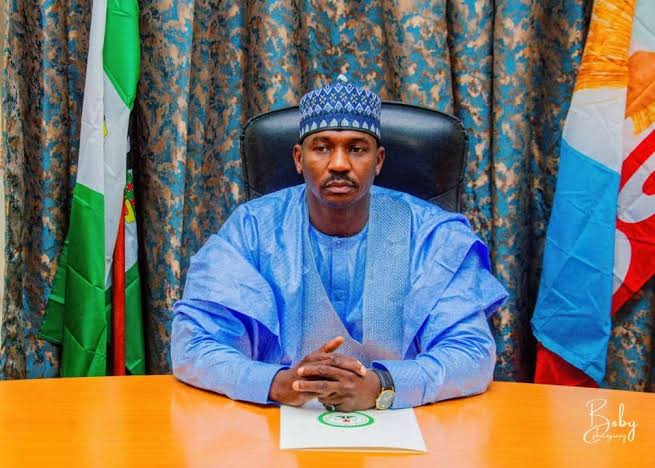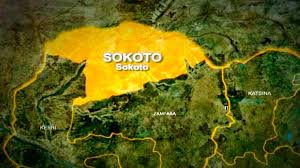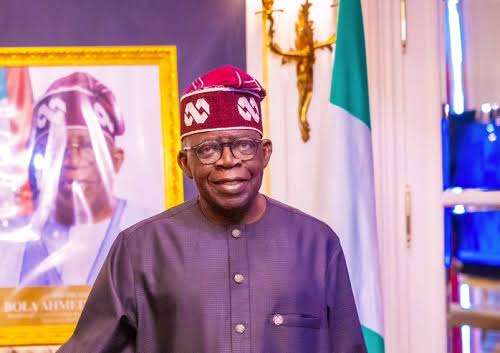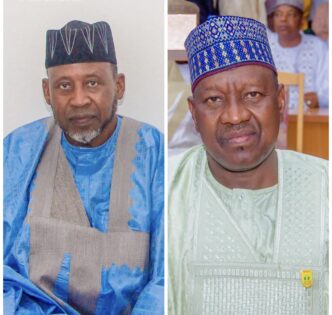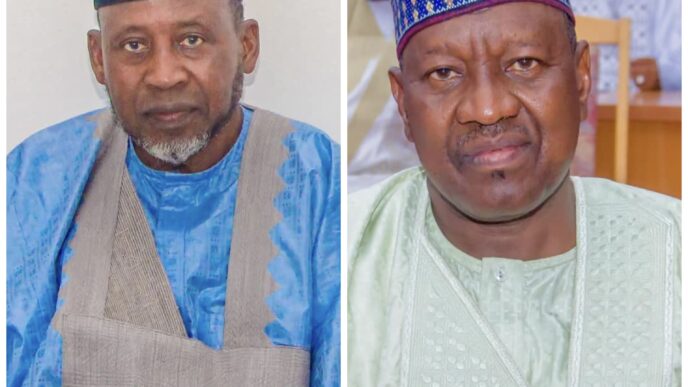Is it ethically proper for a governor to unilaterally place a government-funded project under an independent trust, without the approval of the State House of Assembly? Especially when such placement completely removes state interest or oversight without the concurrence of any known legislation.
Let’s break it down legally, ethically, and administratively:
1. ON ETHICAL GROUNDS.
While the powers of a State Governor to grant concessions or incentives to would be investors, it must be noted that he cannot give away State assets or funds that does not personally belong to him.
A sitting governor holds office as a trustee of the people’s resources, not as a private proprietor of public assets. When a government project especially one financed by public funds and built on public land is converted into an “independent trust” controlled by a selected few individuals or private boards, it raises serious ethical red flags:
Public funds require public accountability. Any asset developed with taxpayers’ money must remain under public ownership, oversight, and audit.
Transparency and equity demand that the people through their elected institutions (State Executive Council, State Assembly, and relevant ministries) must maintain visibility over such project.
Without transparency and accountability conflict of interest will certainly arise if the Trust management includes individuals who have politically connection to the former Governor, moreover when the foreign donors, or private foundations are without statutory obligation to report their activities or expenses to the state.
2. ON LEGAL AND CONSTITUTIONAL GROUNDS
In Nigeria’s federal and state systems:
Under the Land Use Act 1978 Laws of the Federation (as amended) all public land are held in trust by the Governor for and on behalf of the people. Which trusteeship is a fiduciary responsibility for the benefit of the people and not for private delegation or alienation, which informs the reason why any revocation of a Certificate of Occupancy of any land by the Governor, must be for over riding public interest.
Consequently, privatization or any permanent alienation or transfer of interest of any state property to a private or non-governmental trust, unlike any bare public land, requires that the Governor must abide by the laid down statutory provisions backed by legislative authorization or clear executive council resolution.
The Public Procurement Act, Fiscal Responsibility Law, and Audit Law all require accountability mechanisms for state expenditures which are impossible to maintain if ownership or management of state owned assets is ceded to a body outside government control.
Therefore, MOWAA being a State Asset, unless the Edo State House of Assembly expressly approved the privatization or transfer of the institution (or any similar institution) to an independent trust structure, such a move becomes legally questionable, and at worst ultra vires the sole powers of the Governor.
3. ON GOVERNANCE AND POLICY CONTINUITY.
Ethically, governance is about continuity, accountability, and institutional respect. When a sitting governor unilaterally moves a project conceived, funded, and executed by the state into an independent trust, it diminishes public oversight,
disempowers successor administrations, and undermines the principle of institutional permanence in public policy.
Such a move may be justified under lofty terms like “public private partnership,” “international best practice,” or “philanthropic collaboration,” but the core question remains:
If public money and public land was used to fund it, then who truly owns it? The people or the trustees?
4. BEST ETHICAL AND ADMINISTRATIVE PRACTICE.
A responsible and transparent government would:
Retain majority ownership or controlling interest in any trust or board created for a public project;
Ensure state representation through statutory appointments (e.g., Commissioner for Culture, Attorney General, or Finance);
Table the full trust deed before the House of Assembly for debate, transparency, and ratification;
Include clear audit and reporting obligations to the public.
5. The Edo MOWAA Context
If the Edo State Government indeed spent billions of naira, ceded prime public land, and yet created MOWAA as a private, independent trust without statutory backing or legislative ratification that action is ethically unsound, administratively questionable, and politically indefensible.
The current governor, Monday Okpebholo, has both the right and the duty to review and regularize that arrangement. But he must do so diplomatically and lawfully, balancing state interest with cultural and traditional sensitivities, particularly in relation to the Oba of Benin’s moral and custodial claim over the heritage artifacts.
The Benin Kingdom, represented by our revered monarch, Omo N’Oba N’Edo Uku Akpolokpolo, Oba Ewuare II, has a moral and cultural claim in the matter. The very foundation of MOWAA was linked to the noble idea of providing a home for the returning artifacts of the Great Benin Kingdom heritage treasures that rightly belong under the spiritual and cultural guardianship of the Oba of Benin. To treat that royal connection as a footnote is not just an administrative error; it is a cultural affront.
Governor Obaseki’s administration was not without fault. His style often bruised egos and unsettled entrenched interests, used the same thuggery and brigandry to chase his predecessor. Yet, beneath the politics, he pursued reforms in education, digital governance, infrastructure renewal, and institutional modernization. Those efforts, imperfect as they may seem, deserve refinement, not thuggery.
Violence should not be the only currency our politicians trade with in the market of disagreement, consequently those who attacked guest during the opening must be brought to book, for we cannot destroy, before the international community, that which we seek to protect. For Leadership is continuity with improvement, not demolition with applause.
Therefore beyond partisan rivalry lies a more delicate issue demanding Governor Okpebholo’s maturity and discernment.
Governance is not vengeance, and leadership is not a weapon of retribution. Yet, too often in Nigeria, the transition of power becomes an excuse to erase the footprints of predecessors even when those footprints point toward progress. This dangerous culture now threatens to play out in Edo State, where people are also complaining about the early signals from Governor Monday Okpebholo’s administration as suggestive of political rivalry than policy vision.
They complain about the quiet reversals, the political undercurrents, and the tension around certain decisions from the controversial attempt to relocate the Edo State College of Education from Abudu to Igueben, to the subtle withdrawal from projects associated with former Governor Godwin Obaseki. All these give the impression of a government driven by correction for political revenge rather than correction for public good.
As already mentioned above Museum of West African Art (MOWAA) an institution, conceived with good intentions, where the state reportedly committed billions in cash and a prime land to, has become mired in controversy because of how it was structured as an independent trust which divorced the State Government and the traditional institution that inspired its creation, from having any stake on control over same must be addressed not combatively, but diplomatically and transparently.
Governor Okpebholo must therefore approach this sensitive issue with wisdom and diplomacy. He must seek to right the wrongs in the conception and structure of MOWAA, while ensuring that the interests of the state, the traditional institution, and the people are harmonized not antagonized. As true leadership listens to history, not just politics. Edo’s heritage cannot be privatized under the guise of philanthropy, nor should it be politicized by the vanity of men.
Governor Okpebholo stands at a defining juncture. He can either fall into the Obaseki’s familiar trap of governing through vendetta, or he can rise as the bridge-builder Edo State desperately needs. He can choose to spend his tenure undoing the past, or invest it in uniting the strands of Edo’s complex political and cultural identity for a stronger tomorrow.
History has no patience for smallness. It honors leaders who heal divisions, correct mistakes with tact, and carry everyone, the political class, the traditional institution, and the ordinary citizen, along a shared path of progress. Edo State needs such leadership now more than ever.
Governor Okpebholo must therefore wear a wider lens, one that sees beyond APC and PDP, beyond political debts and inherited grudges to the real picture of Edo’s destiny. Governance must be people-centered, not predecessor-focused. And in reconciling the MOWAA question, in settling the Edo state college of education Abudu controversy, and in charting a new direction for our state, he must remember this eternal truth: When governance becomes a vendetta, the people lose twice, but when leadership becomes reconciliation, the people win forever.
@Dr. Liborous Oshoma Esq.
Legal Practitioner based in Lagos
Gatekeepers News is not liable for opinions expressed in this article, they’re strictly the writer’s.







